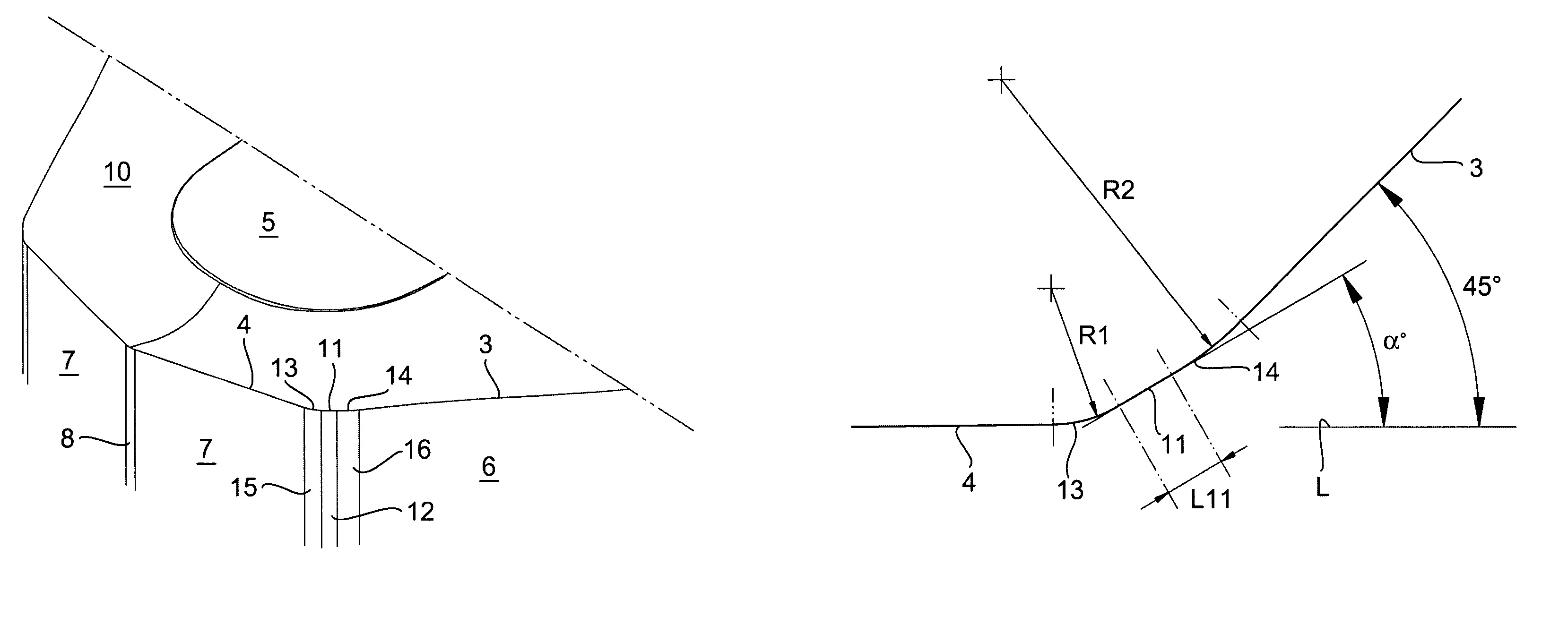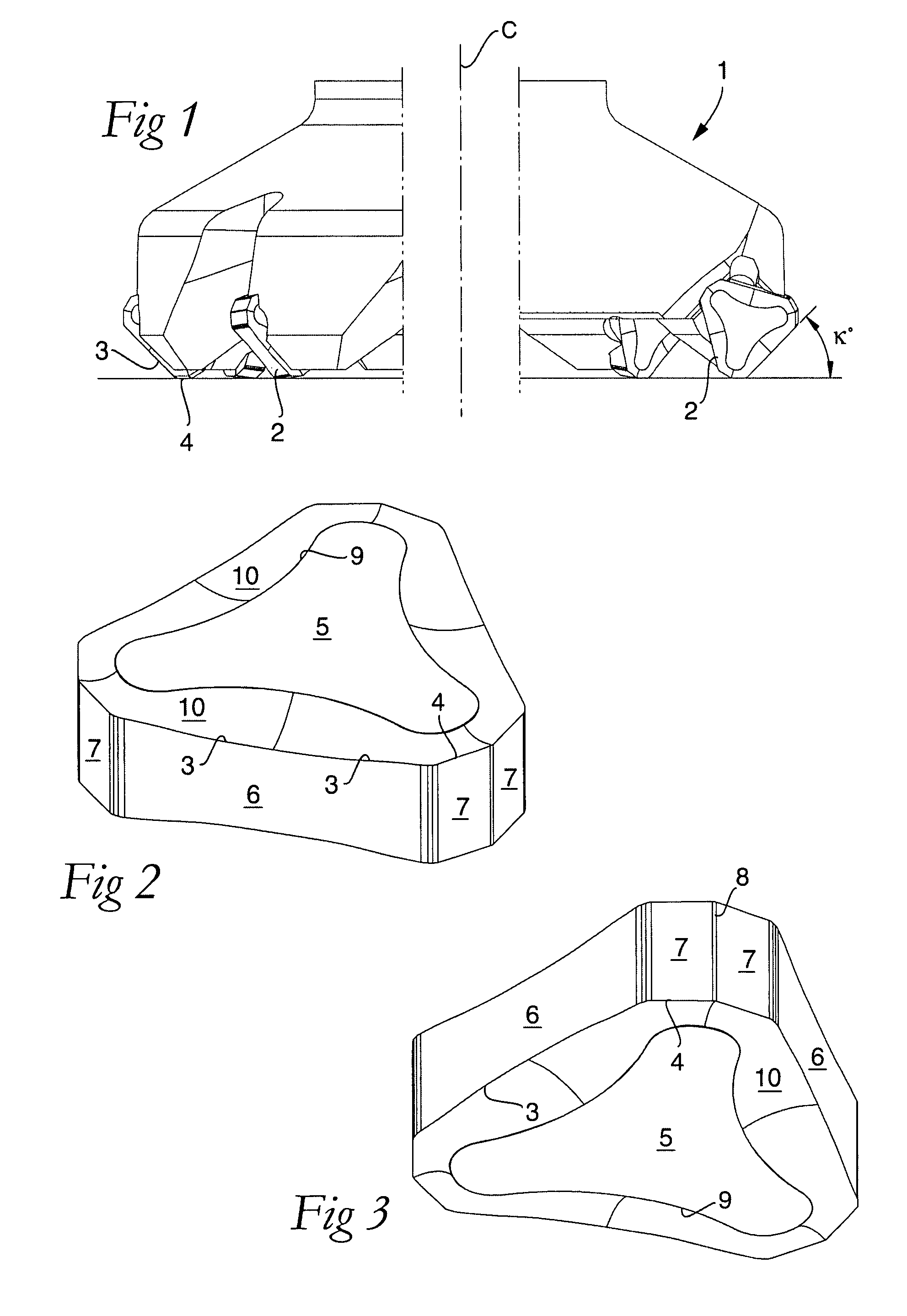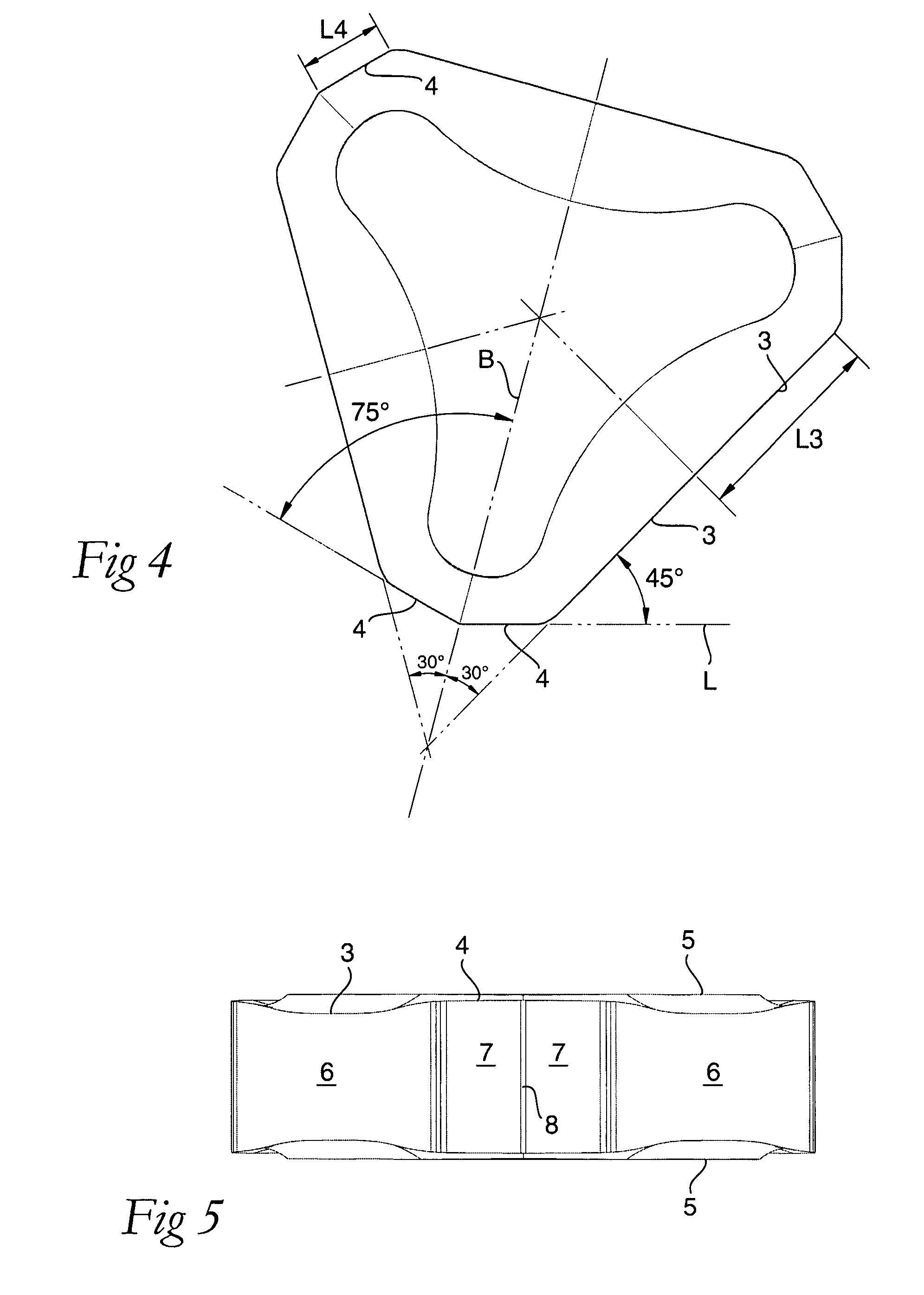Face milling insert
a face-milling and insert technology, applied in shaping cutters, manufacturing tools, transportation and packaging, etc., can solve the problems of large stress on the edge piece that is torn loose laterally, blanks having to be discarded, and damage of this type, so as to improve the quality of face-milling and ensure the quality of the surface. good, long-lasting
- Summary
- Abstract
- Description
- Claims
- Application Information
AI Technical Summary
Benefits of technology
Problems solved by technology
Method used
Image
Examples
Embodiment Construction
[0019]In FIG. 1, numeral 1 designates a basic body in the form of a milling cutter head, which is rotatable around a center axis designated C. Depending on the diameter of the mill, a varying number of milling inserts 2 are arranged along the periphery of the basic body, which inserts, in this case, have a triangular basic shape. In each such milling insert, main cutting edges 3 and surface-wiping secondary edges or wiper edges 4 are included. All active secondary edges 4 are situated in a common plane P, which extends perpendicularly to the center axis C. The setting angle κ between each main cutting edge 3 and the plane P amounts to 45°. When the mill, during operation, is moved rectilinearly at the same time that it rotates, the main cutting edges 3 will, in a traditional way, remove chips from the blank being machined, while the secondary edges 4 smooth down or wipe off the generated surface.
[0020]Reference is now made to FIGS. 2-8, which in detail illustrate the nature of the m...
PUM
| Property | Measurement | Unit |
|---|---|---|
| angle | aaaaa | aaaaa |
| radius | aaaaa | aaaaa |
| angle | aaaaa | aaaaa |
Abstract
Description
Claims
Application Information
 Login to View More
Login to View More - R&D
- Intellectual Property
- Life Sciences
- Materials
- Tech Scout
- Unparalleled Data Quality
- Higher Quality Content
- 60% Fewer Hallucinations
Browse by: Latest US Patents, China's latest patents, Technical Efficacy Thesaurus, Application Domain, Technology Topic, Popular Technical Reports.
© 2025 PatSnap. All rights reserved.Legal|Privacy policy|Modern Slavery Act Transparency Statement|Sitemap|About US| Contact US: help@patsnap.com



